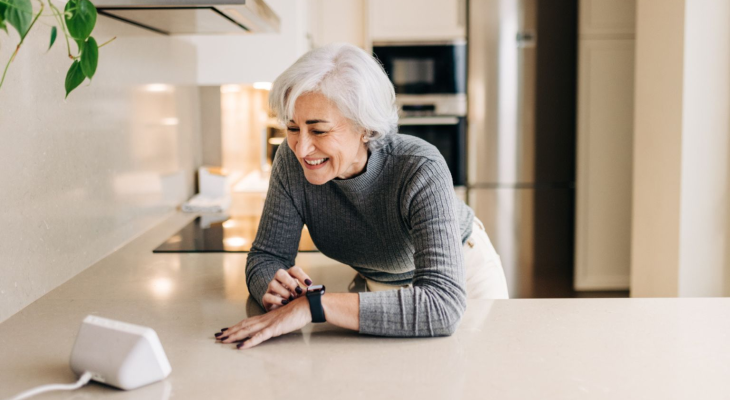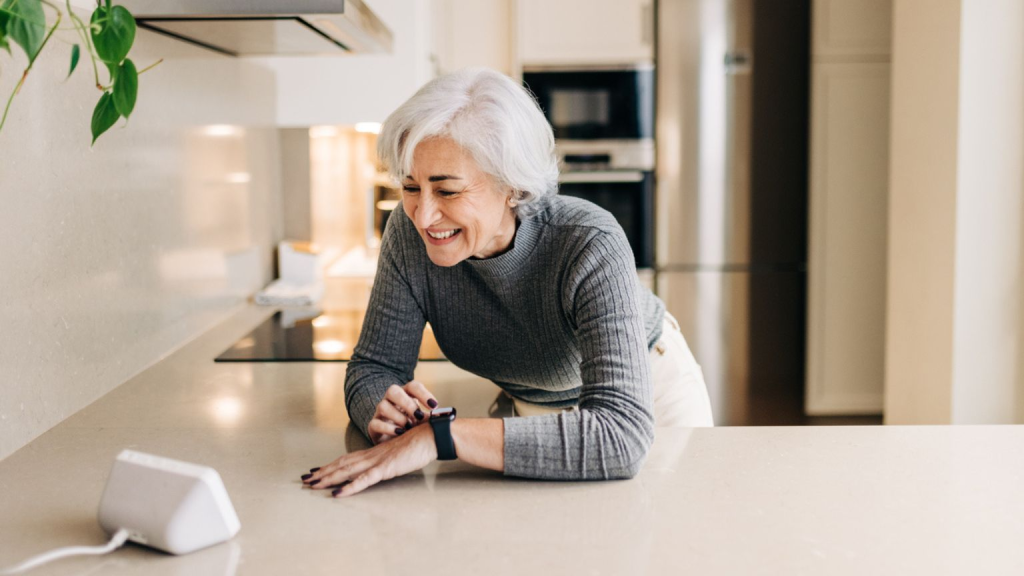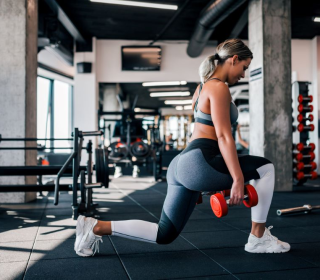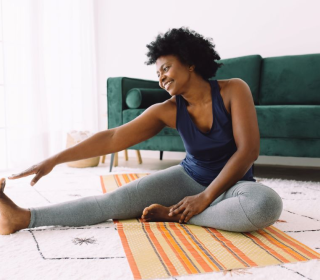Artificial Intelligence: How Women Are Embracing AI to Empower Their Health

Artificial intelligence is being used by women to monitor their symptoms. Why women are turning to AI technology when it comes their health
A new survey has revealed that women in the UK use AI (artificial intelligent) symptom-checkers to manage their own health, but still want to see real doctors involved.
The survey of 1,500 UK females aged 25-55, commissioned by Healthyly (which has an AI platform that includes a medical device symptom checking tool with over 700 conditions), revealed a strong appetite for online medical symptom checks. 41 percent of women said they would use them to learn about any health concerns.
One in four adults cannot get a GP’s appointment when they are in need of one
65 per cent of people who use symptom checkers do so to avoid long waiting times at their GP. A report in The Times earlier this year stated that 1 in 4 adults cannot get a GP’s appointment when they are in need.
Healthily, an AI-based health platform, conducted a survey to better understand the attitudes of users towards AI smart symptom checking tools in relation to their own self-care. Another 1,500 US-based women were also interviewed. The survey was conducted by the consumer research platform, Attest (askattest.com).
ChatGPT, an artificially intelligent chatbot created by OpenAI and launched in November 2022, is a new chatbot.

AI requires a human face
The role of doctors is still highly valued. Eight out of ten women who responded to the survey said they were in agreement or strongly in agreement that AI symptom-checkers are most effective when backed by real doctors.
‘With NHS wait times increasing, and only 10 minute allocated to each patient, we believe we can reduce the burden of the NHS’, says Professor Maureen Baker CBE. Former chair of the Royal College of GPs.
AI symptom checkers are most effective when backed by real doctors
Women want an AI symptom-checker but, according to our survey, they also want the added assurance of real doctors. The Healthily Smart Symptom Checker is the perfect solution for this.
Healthily, in addition to creating medically-verified content, has spent seven years developing Smart Syndrome Checker (SSC), and has invested 40m dollars into best-in class AI using data entered by Healthily doctors.
Checking in with a variety of conditions
Women use symptom checkers for all kinds of medical issues. From common cold symptoms to changes in bowel health and breast cancer detection, they can navigate through a wide range of medical concerns.
Women reported using symptom checkers to diagnose the following 7 conditions:
- Sleep (51%)
- Skin problems (51%)
- Weight management (47%)
- Period problems (46%)
- Headaches (46%)
- Allergies (44%)
- Respiratory symptoms (40%)
Women are more reluctant to use a symptom-checker to find out about more “intimate” conditions such as changes in their breast health (21%) or vaginal health (22%)
Women are interested in menopause symptoms because they know that it affects their sleep, vaginal health, and weight. For more information about menopause, check out the Healthitsa Menopause pack.

Women who are tech-savvy
As part of their digital repertoire, UK women use technology to navigate the healthcare system better.
The half of the women said they use the symptom checker as a tool to gather information and facts before visiting a doctor or pharmacist.
AI and self-care are gaining popularity
Professor Baker says that ‘Health Technology is Progressing at a Rapid Pace, as we have seen in the last few months, with all the buzz around ChatGPT’.
Only five years ago, AI was still a sci-fi concept. We would have found more resistance and skepticism towards the technology we use today.
The results of the survey suggest that women are more trusting and have a different attitude towards AI in managing their health. As health tech advances, women are increasingly taking control of their own health.
The cost of living crisis and COVID-19 have accelerated this trend.
As health technology evolves, women are encouraged to take charge of their own health.
Professor Maureen Baker says that we use our smartphones to plan all other aspects of our lives.
Why not give it a go if you find a reliable and trusted source of health info via a symptom-checker?
“And if this source could help you determine what conditions are most likely and if you can save money using self-care, or a visit to the pharmacy, it could be even more helpful.”

Take back control
The symptom-checker would also help women to navigate the NHS. Sixty-three percent of women said they would use it to self-care safely at home. And 63 percent said they felt more confident in making self-care decisions if they were supported by a tool like this. (For those who already used a checker, that number rose to seventy-three per cent).
A further 48 percent said that they would self-care in order to better manage their symptoms and health.
Women want to be confident in the accuracy of artificial intelligence. 39 percent said that accuracy was a factor that would influence them to use a symptoms checker. The recent updates of the SSC are reassuring as they have improved its accuracy.
To find out more about Healthily and its smart symptom checker, visit www.livehealthily.com
HEALTHISTA’S ANSWER TO MENOPAUSE; MENOSTART: PRESS PLAY, NOT PAUSE.
The Healthista Menopause pack is an online video workshop led by Dr Dawn Harper. It’s affordable, accessible, and covers all aspects of menopause for those in need.
This online resource, which includes information and advice from seven menopause experts who are respected in the industry, is designed to help women deal with common challenges and changes they may face before, during and after menopause.










